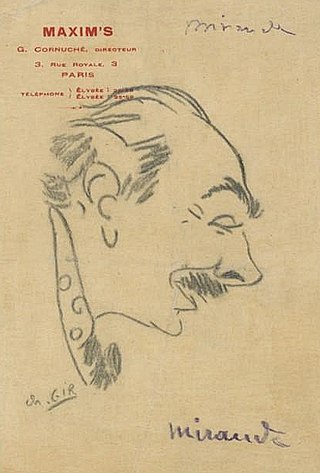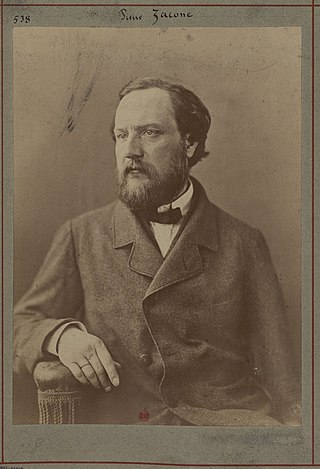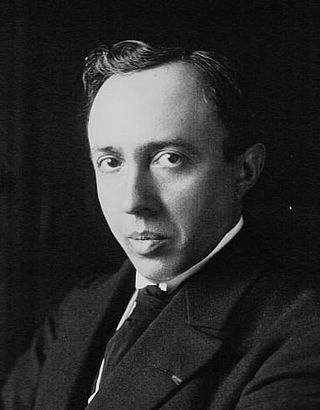
Joseph Méry was a French writer, journalist, novelist, poet, playwright and librettist.

Louis Bertrand was a French novelist, historian and essayist. He was the third member elected to occupy seat 4 of the Académie française in 1925.

Pierre-Eugène Veber was a French playwright and writer.

Laurent Tailhade was a French satirical poet, anarchist polemicist, essayist, and translator, active in Paris in the 1890s and early 1900s.

Claude Étienne Edmond Marie Pierre Delvincourt was a French pianist and composer of classical music.

Armand Camille Salacrou was a French dramatist.

Francis de Miomandre was a French novelist and well-known translator from Spanish into French.

Henri Jules Charles Petiot, known by the pen name Henri Daniel-Rops, was a French Catholic writer and historian.

Yves Mirande was a French screenwriter, director, actor, and producer.

Joseph Anglade (1868–1930) was a French philologist. He specialized in Romance languages, particularly Occitan, and studied the lyrics of the troubadours. He was instrumental in formalizing the term Occitan for the language of Provence.
Léonce-Henri Burel was a French cinematographer whose career extended from the silent era until the early 1970s. He was the director of photography on more than 120 films, working almost exclusively in black-and-white.

François Porché was a French dramatist, poet and literary critic. The French Academy awarded him the Grand Prix de Littérature in 1923. Les Butors et la Finette, a "symbolical and allegorical drama" premiered in 1917, Sam Abramovitch in 1927 and Un roi, deux dames et un valet in 1934. He published a war poem L' Arret sur la Marne in 1916 and a poetry collection called Charles Baudelaire in memory of the poet.

The Théâtre Fémina or Salle Fémina was an entertainment venue located at 90 avenue des Champs-Élysées in the 8th arrondissement of Paris. It was inside the Hôtel Fémina, designed by the architect Henri Petit.

Pierre Zaccone was a popular 19th-century French novelist.
The prix Broquette-Gonin was a former prize awarded by the Académie française.
Charles Derennes was a French novelist, essayist and poet, the winner of the Prix Femina in 1924.

Raymond Escholier, real name Raymond-Antoine-Marie-Emmanuel Escolier, was a French journalist, novelist and art critic. He was curator of the Maison de Victor Hugo and of the Petit Palais.

Clément Vautel, pen name of Clément-Henri Vaulet was a journalist, novelist and playwright of Belgian origin, naturalized French (1897).
The Prix Juteau-Duvigneaux of the foundation of the same name, was an annual prize in philosophy awarded by the Académie française. Starting in 1896, it was awarded to the author or authors of works in Ethics, especially from the Catholic point of view.














